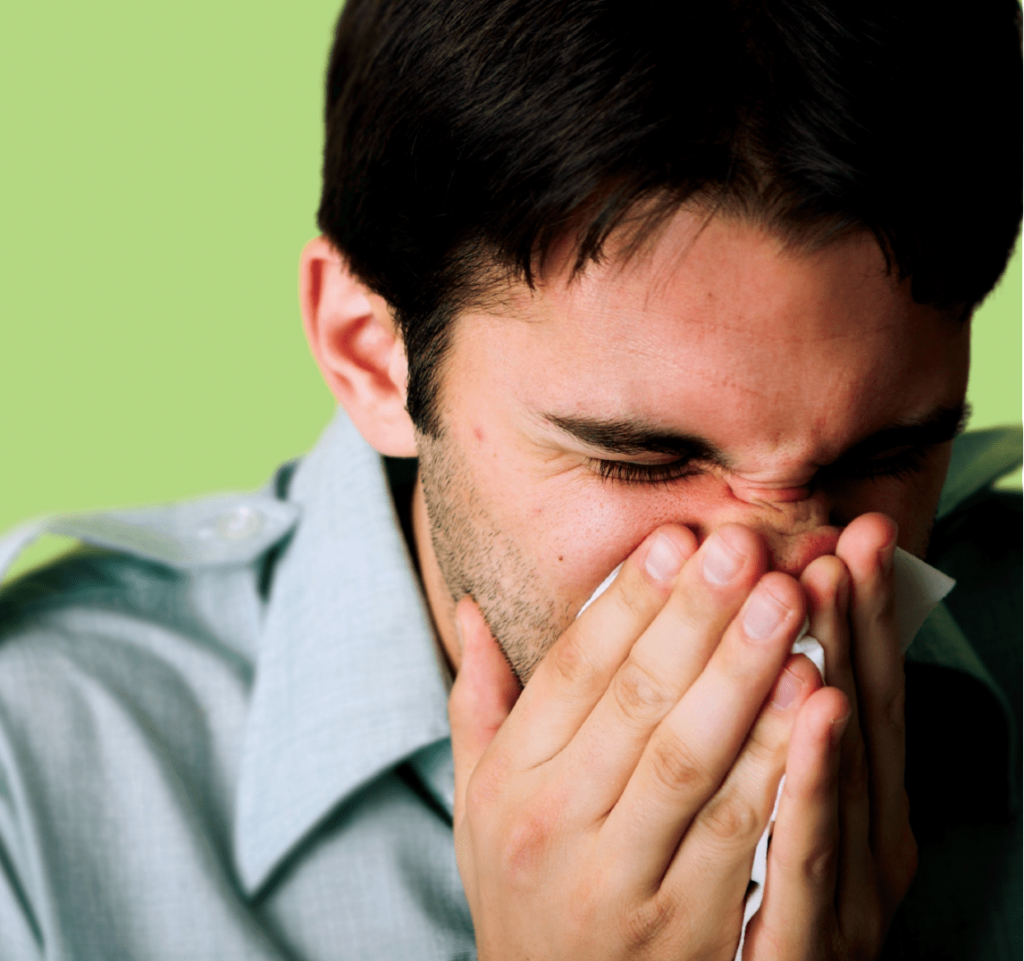Itchy, swollen eyes, sneezing and a runny nose may sound like a case of seasonal allergies, but for many, these are the allergy symptoms they experience each time they visit the dentist.

What is an allergic reaction?
Allergies are sensitivities to a substance called an allergen that makes contact with the skin or is inhaled into the lungs, swallowed or injected. Some allergic reactions are mild, while others can be severe and life-threatening.
Who experiences allergic reactions?
Allergic reactions often occur more frequently in people who have a family history of allergies. Substances that don’t bother some people can trigger allergic reactions in others. It’s important to discuss any allergies in your family history, or any known allergies that you have, with your dentist prior to your visit.
What might cause an allergic reaction
in the dental office?
Dental amalgam components. Dental amalgam is used to fill cavities caused by tooth decay. The metals in dental amalgams — silver, copper or tin — may bring about oral lesions or other contact reactions.
Latex. Latex can be found in many medical or dental supplies and devices, such as masks, gloves and syringes. Unlike some consumer goods made from synthetic latex, natural rubber latex is derived from a milky substance found in rubber trees. If you are allergic to latex, ask your dentist if he or she has latex-safe products.
Local anesthetic. Local anesthetics numb your mouth and gums during dental treatments. Although allergic reac- tions to local anesthetics are rare, they can occur.
Allergic reactions often occur more frequently in people who have a family history of allergies. Substances that don’t bother some people can trigger allergic reactions in others.
What are the symptoms of an allergic reaction?
In addition to itchy, swollen eyes, a runny nose and sneez- ing, the development of hives, dermatitis (skin rash) and asthma also are common allergic reactions. The most severe allergic reaction is the potentially fatal condition known as anaphylactic shock, which is characterized by general- ized flushing of the skin, hives, mouth and throat swelling, difficulty in swallowing or speaking, changes in heart rate, abdominal pain, nausea and vomiting, anxiety, a sudden feeling of weakness (due to a drop in blood pressure) and unconsciousness.
What should I do if I have allergies or experience an allergic reaction?
Talk to your dentist and the dental staff, and make sure that the information is included in your patient chart. If you have had severe allergic reactions, you should consider carrying an epinephrine kit (EpiPen®) and using a medic alert brace- let that clearly states your allergy. You also may want to carry a letter of explanation from your physician.
If you have allergic symptoms after a dental procedure, consult with your dentist and physician immediately. If you experience a severe allergic reaction after a dental proce- dure, go immediately to the hospital emergency room.
© COPYRIGHT 2017 BY THE ACADEMY OF GENERAL DENTISTRY. ALL RIGHTS RESERVED.